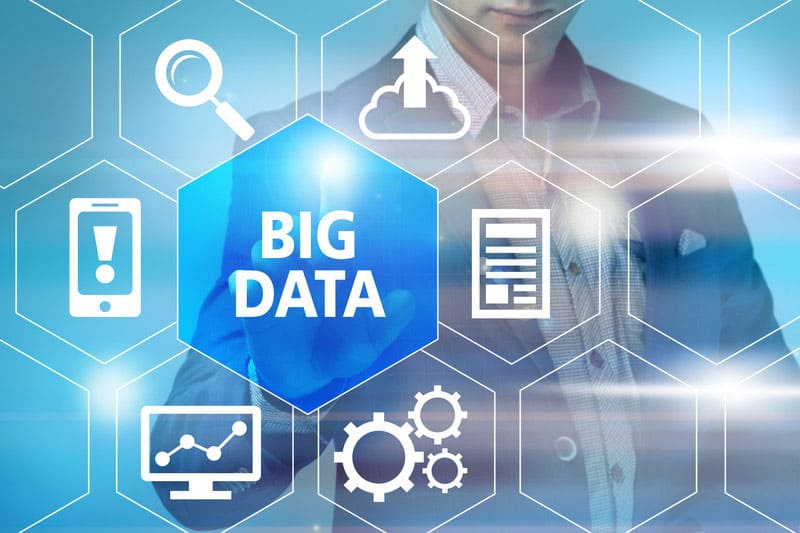The demand for data entry services has increased considerably with increasing demand for digitized data. Every organization has huge volumes of data and businesses use efficient methods to turn their data into usable information. Data analytics shows the trends and patterns existing in the market so that businesses can adopt the necessary strategies to stay competitive. As every area of research becomes data-intensive, emphasis is shifting from data generation to data analysis and this has led to the development of big data. Big data refers to the sets of large or complex data that uses predictive analytics and user behaviour analytics to extract value. Using big data analytics businesses can take informed decisions, increase operational efficiency, improve or develop new products and services and provide better customer service.
Even though big data analytics is already in use for data-driven innovations, every year it goes through several changes due to emerging technologies like artificial intelligence, machine learning etc. Here are the top big data analytics trends for 2021.
- Actionable Data: By next year, actionable data will be given more importance. Actionable data indicates the missing connection between business propositions and big data. Businesses generate huge volumes of big data and this data has value only if it is used for analysis. Therefore, businesses will be investing more in high-end big data software and tools to extract actionable data insights.
- Database as Service: Data as a service uses cloud technology to deliver data storage, integration, processing, and/or analytics services via a network connection. Database as a service (DaaS) is merging big data analytics solutions to meet the ever-growing need of the clients using customer information. Integrating DaaS and big data analytics helps in better management of data.
- Rising Digital Transformation Wave: Digital transformation has taken over almost all industries and it goes hand-in-hand with the Internet of Things. Artificial Intelligence, Machine Learning and Big Data. With IoT connected devices expected to reach a staggering 75 billion in 2025[7] from 26.7 billion currently, there will be more big data. Businesses will increasingly use machine learning and artificial intelligence tools to manage the large-volume data generated by massive data centers, and gain valuable business insights. In the US economy alone, for example, they are losing as much as $3.1 trillion a year due to poor data quality. So, businesses should focus on optimizing the use of all that data on their data servers.
- Continuous Intelligence: It is a system that integrates real-time analytics along with business operations and recommends actions based on both historical and real-time data. It processes both historical data and current data to enable better decision making. According to Gartner, over 50% of the new business systems will be using continuous intelligence by 2022. Continuous Intelligence helps businesses monitor and optimize organizational decisions and provide better customer support.
- Big Data in Climate Change: Climate change is not new but using big data to fight against climate change is new. With big data, researchers can have more information regarding the current stage of carbon dioxide emissions and the remedies to the situation. The data from meteorological research, earth sciences, ocean research, and even nuclear research facilities helps to understand climate change and other primary environmental conditions related to the planet.
- Natural Language Processing: NLP was initially popularized as a subset of Artificial Intelligence and later evolved into expanding regular activities and business processes. From studying data to finding patterns and more. In 2021 Natural Language Processing will provide instantaneous information retrieval from big data repositories. NLP helps in accessing quality information and also prompts the system to give them the business-related insights that help businesses to move forward. It also helps to know how their customers feel about their brands at a deeper level.
- Leads the Business to New Areas of Growth: From customer interactions, landing page behaviors, video feeds from stores, customer survey outcomes etc important data can be derived. Irrespective of the source of data, the Big Data Analytics companies will assess the data in real time to gain valuable perceptions that the present generation of analytics cannot provide. In future, more companies will make the best use of data analytics. The present analytics methodologies have helped retailers to increase their margins up to sixty percent and with advanced capabilities and location-based services businesses will make the numbers reach even higher from 2021.
- Better Data Governance: General Data Protection Regulation (GDPR) guidelines were introduced last year and with that data governance initiatives continue to mobilize globally. This means uniform compliance for all business sectors that deal with big data or else they face a substantial fine and other penalties.
Companies that comply with GDPR will see positive effects on their brand reputation. This is most likely as customers vote trustworthy vendors with their wallets. Trustworthy businesses will generate more reliable big data.
Big data analytics is believed to be complicated and difficult to understand. But the introduction of new analytics tools that are more sophisticated yet user-friendly has made business analysis easy. Converting all important data into digital format with the help of data entry services enables businesses to collect all data, analyze it and use it constructively.




